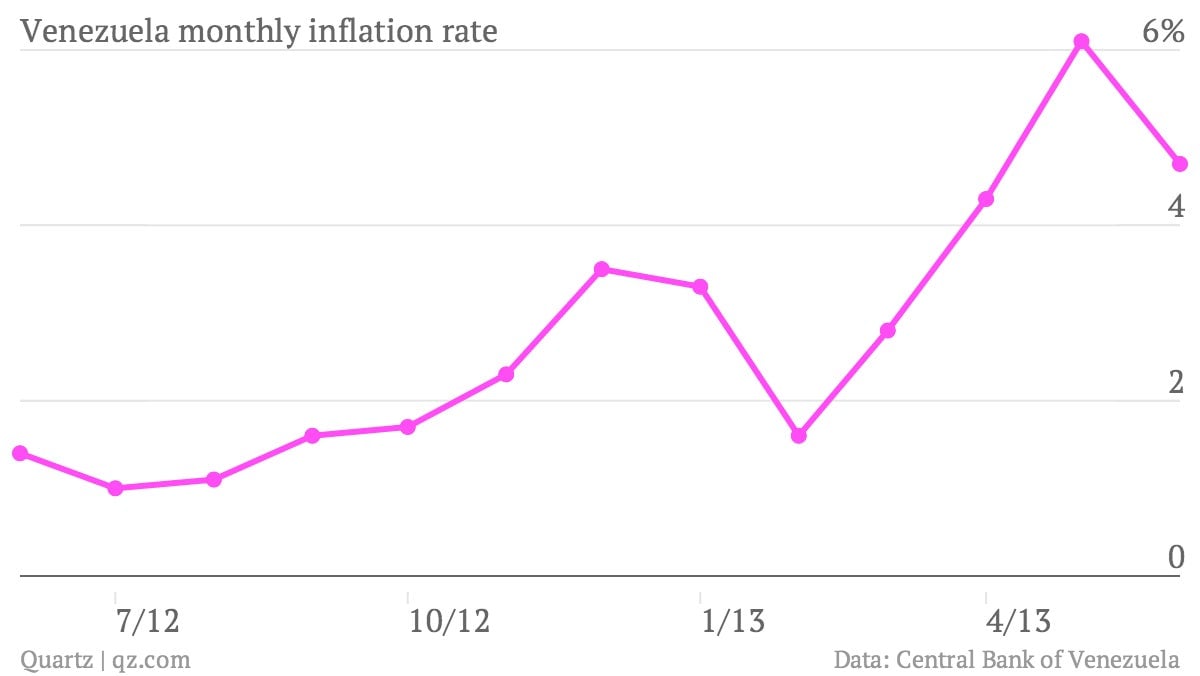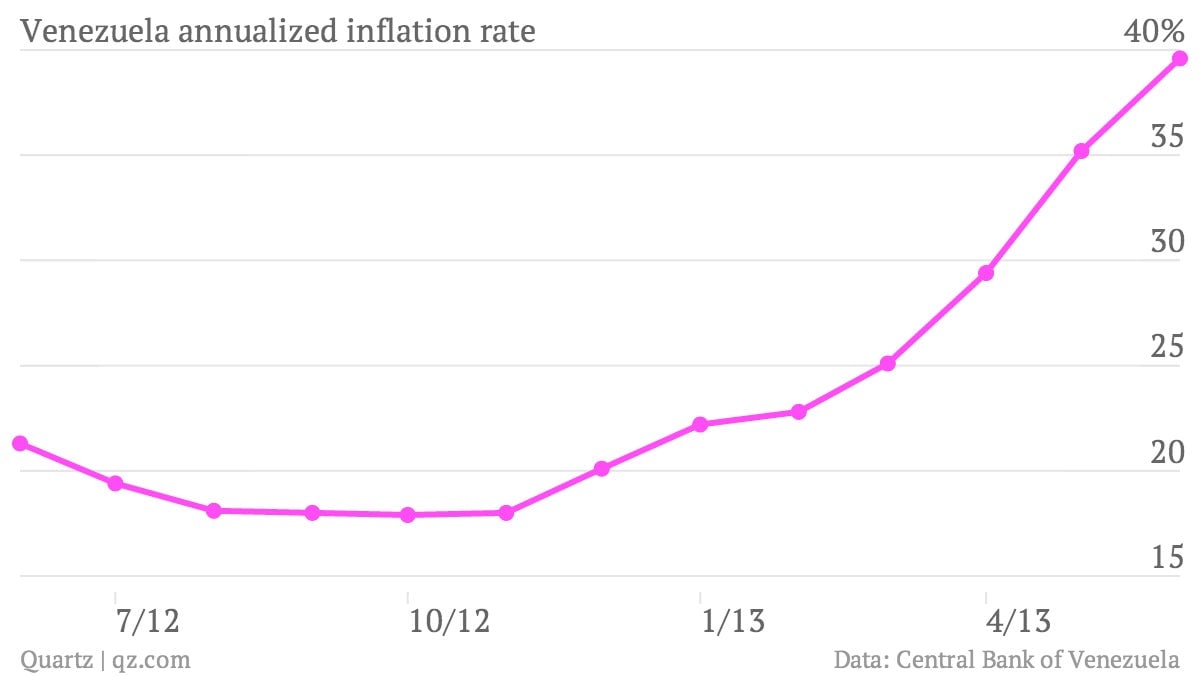Venezuela shows the world what it’s like to look hyperinflation in the eye
The good news is Venezuela’s monthly inflation rate slowed from a record high in May to 4.7% in June. The bad news is that bumps its annualized rate (the expected year-over-year rate) up to an astronomical 39.6%, just short of the much feared hyperinflation levels.


The good news is Venezuela’s monthly inflation rate slowed from a record high in May to 4.7% in June. The bad news is that bumps its annualized rate (the expected year-over-year rate) up to an astronomical 39.6%, just short of the much feared hyperinflation levels.

Goldman Sachs defines hyperinflation as annualized inflation rates of more than 40%, which puts Venezuela on the cusp. When rates are that high, no one wants cash, which weighs on growth. Analysts expect the economy will retract by roughly 1% this year, after it grew only 0.7% in the first quarter of 2013, compared to the previous year. In other words, president Nicolas Maduro has a crisis on his hands.

Venezuela’s inflation woes are largely the result of failed government policies. Price and currency controls meant to stem the country’s inflation, which is the highest in Latin America, have instead exacerbated it. In the face of price caps, local producers have been forced to cut outputs, resulting in country-wide shortages of many goods, including flour, corn, sugar and toilet paper. Scarcity has in turn forced inflation up further, defeating the purpose of price controls.
The country’s oil industry is another problem. Venezuela’s oil industry is responsible for roughly 96% of the country’s export revenues, but oil production has declined sharply due to inadequate investment in energy infrastructure and inefficiencies in oil industry management dating back to the late Hugo Chavez’s presidency. Tumbling oil exports have pummeled Venezuela’s foreign exchange reserves. Venezuela is relying more and more heavily on oil imports, even as its foreign exchange reserves continue falling.
Meanwhile, Maduro appears reluctant to shift gears. His government has argued that the current economic crisis is merely temporary. “This is not a structural problem with the economy, it will not be permanent and nor will inflation keep rising,” president of Venezuela’s statistics bureau Elias Eljuri said this past week, adding that inflation will begin to dissipate in July. Seems unlikely, but only time will tell.